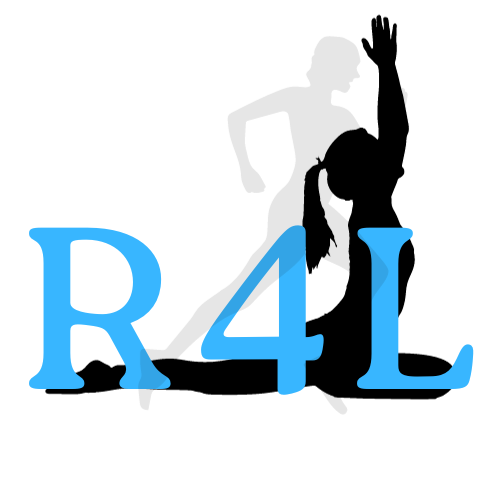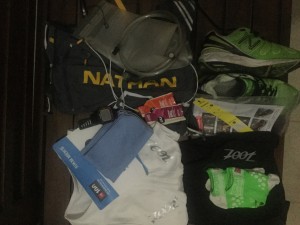Its race week for me. TNF100 Singapore 2015 is this weekend.
You have trained hard for your race and youʼre confident of finishing it within your target time. Race day is just a week away. You are jittery & excited, apprehensive yet confident, all very conflicting emotions. The last thing you want is to race in discomfort all because you did not cut off that offending lable on your new technical vest or worse to forget to bring your race bib to the starting line on race day.
While studying for my MBA at Hull University’s Business School, one of my lecturers, an Englishwoman said ‘there is no bad weather, just bad preparation’. An Englishwoman would know, it rains in England especially in Hull just as the sun beats relentlessly in the Arabian desert. And yet, the English will take their long walks. They are however well prepared, their gear will include a brolly and a raincoat.
Being prepared sets you in the right frame of mind when youʼre waiting for the starterʼs gun at the start line. So how do you prepare the week before the race?
This piece is culled from my experience running and preparing for races. Having participated in races for 11 years, I now arrive at the start line on race day, calm and sure that I have everything I need to race comfortably. It was not always this way. In the early years, I would come to the starting line flustered, late and even without my race bib because I had forgotten safety pins. I ended up running that race with my bib tucked into the front of my shorts. That was one uncomfortable race.
I have divided race day preparation into 3 parts; Race week, The night before the race and Race morning.
Race Week
Perform gear trials. Make sure you have tested everything for the big day, your clothes, gels, drinks, right down to your socks.
Do not wear, anything on the day that is brand new or that you havenʼt tried out before the race. If I needed new race day attire, I will buy them 2 months in advance. The first time I wear them, it will be on a short training run, much like test driving. If I feel comfortable, then I will wear them on another two or three longer runs until I feel completely comfortable running in them.
Do you wear your most comfortable pair of shorts and vest. If you want to race in the event vest provided by the organizers, then you should wear them & wash them at least twice before the race. I however will not run in the event vest. Imagine wearing the same vest as thousands of other people at the starting line? It would feel that you’re back in primary school.
Remove all labels that might irritate you. Those multiple labels that are attached to apparels these days can cause discomfort to distraction.
Never wear a new pair for the race, youʼll regret it as the new shoes are not broken in and you are likely to blister your feet. Rest your race pair for at least 24 hours. Yes your shoes need a rest. The material, both uppers and soles will be stretched when you run in them. But you will want to run in your race shoes during the tapering week at least once.
I will abstain from alcohol on race week. After the race however, a nice beer will do nicely. With all the goodness from barley & malt, a beer is a great recovery beverage. My friend Enrico calls it liquid gold recovery. It tastes great too and what a buzz to go with the buzz of achieving your PB.
You do want to get in lots of fluids on race week. Isotonics for the electrolytes, fruit juices for the energy giving sugars & milk for the proteins and fats are what I normally drink plenty of during race week. The verdict is still out on carbo loading as some saying that its unnecessary. I use it as an excuse to get more of the pasta and potatoes that I love. Logically though, if you need sugars as energy to run, then, take in sugars. Just be sure that they are the right ones. Consult a nutritionist.
Do not eat foods that are unfamiliar to you. Racing with an upset stomach is a satirist’s fodder for a good story. If you have never ever had delicious goat’s brains stew, race week is not the time to try it. That is extreme but you get the picture? Goat’s brains are extremely, heavenly delicious.
The Night before the Race
The last supper, the one before the race, not the famous repast of bread & wine before the betrayal, should contain enough carbohydrates. Lets be sensible though. You do not need to eat past your fill. Your normal portion will do.
Lay out your complete gear before going to sleep. I would place them in order of wearing and pin on my race bib. This way you ensure you have everything you need and you do not have to search for them in the dark. Waking your wife, girlfriend or partner in the wee hours of the morning while you rummage for your running gear is highly not recommended. Pack what you need to carry in a bag and leave it at the front door. I usually do not carry a bag to the start line. Everything I need I wear.
Set your alarm & get enough sleep. Six hours is best for me, some of you might need more, some less but certainly less than four is highly unadvisable. You should know yourself.
Race Morning
Unless you are running a night race, most races start in the morning. In the tropics it means before sun rise to take advantage of the morning cool.
Race day breakfast for me is usually a peanut butter, jam and banana sandwich with a boiled egg and espresso. Eat what is comfortable for you but sugars and proteins are a must. The verdict once again is out on caffeine but it helps me. I eat at least an hour and half before the race.
Suit up and get to the start line. It might be cold in the morning so to beat the chill, I would wear a very old t shirt and then toss it in a trash can at the start line before the gun goes. I like to get to start line at least 30 minutes to warm up. Warms up are usually dynamic. Walk and run sequence, kicks and lunges are best.
At the start line, smile and be friendly, wish other runners a good run, wait for the gun and enjoy the race!

